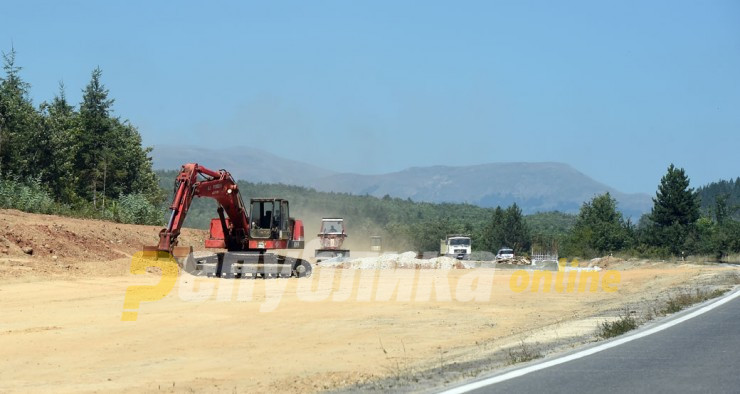The Minister of Transport, Aleksandar Nikoloski, announced today that the work on the Kicevo-Ohrid highway and the start of the construction of the highway from Kicevo to Bukojčani will be suspended. He expects the road from Prilep to Gradsko to be completed soon and plans to devote himself seriously to the realization of the highway sections from Tetovo to Gostivar, from Gostivar to Bukojčani, and from Prilep to Bitola.
In a statement to the media after his visit to the Faculty of Civil Engineering in Skopje, Minister Nikoloski reaffirmed their promise to have a functional highway by the end of 2026.
Regarding the construction of the Ohrid-Kicevo highway, there are numerous problems. “We are identifying them right now. Some are related to expropriation, some to slope design, and others to facilities that are on the route itself, primarily gas stations that need to be relocated. What I can say is that, however we do it, we will do it, but the promise we made that there will be a functional highway by the end of 2026 will be fulfilled,” Nikoloski said.
According to the dean of the Faculty of Civil Engineering, Goran Markovski, the situation with the Ohrid-Kicevo highway illustrates that the design of serious infrastructure projects, especially linear infrastructure projects, deserves much greater attention and a longer design period.
“There are many elements that are specific from different aspects, but a general conclusion that can be drawn is that design is a very important stage in the overall construction of such capital investments. The project has a long history. It was developed at another time, starting in 1999, with different understandings and rules for solving certain technical problems. If this highway were designed today, it would certainly be approached differently, and different solutions would be found for the problems we are encountering now,” Markovski said.
In his statement to the media, Minister Nikoloski announced the realization of large infrastructure projects and emphasized his commitment to engaging domestic companies.
“Definitely, my number one commitment will be that domestic companies work, that people from the state are employed, and that the funds Macedonia invests in infrastructure remain in Macedonia. Moreover, the knowledge gained will be retained and upgraded because the realization of each project, especially the large ones, means additional knowledge and experience. Unfortunately, in recent years, Macedonia has been lagging behind in that area, and we must make great strides in the coming period,” said Nikoloski.
Regarding the railway, he said that the first priority to be developed together with Macedonian Railways is Corridor 10.





Comments are closed for this post.